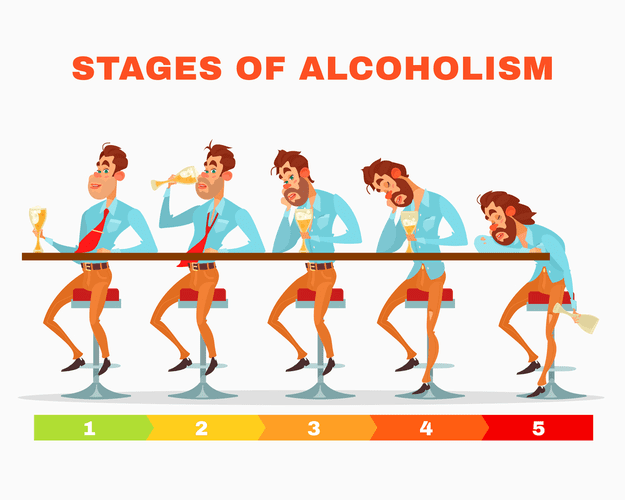Content
Sober living houses can foster peer encouragement, camaraderie, character development, and accountability in residents. The outcomes of living in such an environment can include positive health, behavioral, and relationship changes. Alcoholics Anonymous (AA) originated in the 1930s and provided the steppingstones for sober housing by requiring strict sobriety, participation in the community, peer support, and a 12-step program. However, AA did little to address housing needs for its participants as they worked through the program.

We also focus on spiritual and personal growth, and encourage all of our members to attend multiple meetings on-site and off campus daily. Get all your addiction treatment questions answered by compassionate staff who understand what you’re going through. Outpatient rehab programs allow you to recover while living in the comfort of their own home, with fewer weekly treatment programming than Intensive Outpatient. By Buddy T
Buddy T is a writer and founding member of the Online Al-Anon Outreach Committee with decades of experience writing about alcoholism.
Are You Looking at Sober-Living Houses? Here Are a Few Things You Should Know
In a study of women offenders released from jails in New York City 71% indicated that lack of adequate housing was their primary concern. Central to recovery in SLHs is involvement in 12-step mutual help groups (Polcin & Henderson, 2008). Residents are usually required or strongly encouraged to attend meetings and actively work a 12-step recovery program (e.g., obtain a sponsor, practice the 12 steps, and volunteer for service positions that support meetings). However, some houses will allow other types of activities that can substitute for 12 step groups, provided they constitute a strategy for maintaining ongoing abstinence.

Whatever the source of the referral, take a tour of the facility and talk to the people living there to decide if it’s the right fit for you. The residents of halfway houses are typically court-mandated to live there, and the facilities are therefore run by the state. While sober living homes do not have to offer drug testing or group therapy, those that do typically have state licenses that regulate those medical activities. In general, a sober living home is simply a place that does not allow drug or alcohol use, so residents can support each other while they recover from their addiction or substance abuse.
OUR FAMILY
If you are interested in or decide you need sober living, our admissions coordinators will work with you to connect you to honest, safe, and nurturing providers in our communities. Having extra support and accountability https://www.healthworkscollective.com/how-choose-sober-house-tips-to-focus-on/ makes a tremendous difference. Knowing that you’re living among other sober people can help you stay on the right path. You’ll feel safe, comfortable, and motivated to keep moving forward yourself.
In fact, some sober living homes use peer-led programming and focus on mutual accountability, while others have staff members who lead programming. Halfway houses have rules to enforce the sober environment of the home. A strict abstinence policy is central to the policies of all halfway houses. Residents are expected to participate in rehabilitative programs and to complete all court-mandated requirements, such as community service.
What’s It Like to Live in a Recovery Home?
Our shared apartment-style living environment is often seen as the key differentiator for our residents. Each resident is charged with helping to keep their housemates clean and sober, and this shared commitment often creates an irreplaceable friendship and commitment within each apartment. Many of our residents make long-long friendships while in our program, and consider members of our community as close as family. Typically, as long as you abide by the rules, you are free to remain in the home as long as you need. Acknowledging and celebrating the hard work of recovery is helpful for keeping you motivated and reminding you why you took this brave step toward sobriety in the first place. Instead, focus on things, experiences, and activities that will support your new, healthy lifestyle.
- Abstinence can be defined simply as physical free from mind-altering substances.
- Call us or text us right now to speak to someone who’s been in your shoes and who can help guide you on your options when seeking help for drug & alcohol addiction.
- We offer many options to meet people’s needs, with an individualized plan that works for them.
- The Last House Sober Living for Men in Los Angeles, California is dedicated to providing a true path to long-term recovery for our clients.
Sober-living homes provide a strong support network and community to help you safely navigate the tough spots and triggers you may encounter. Sober living is just like it sounds, a place to stay where you’ll have a supportive community and can start your new life free from alcohol or other drugs. Residents in sober-living homes commit to abstaining from substance use while participating in outpatient programming or after completing inpatient drug rehab. Let’s say you or a loved one has almost completed an alcohol or other drug addiction treatment program. Or maybe you’re going to start an outpatient program, but living at home isn’t a sober, supportive environment for you.
Assessing the Impact of the Community Context
Most people who make their way into recovery have left a lot of pain and suffering in their wake. Feeling guilty or ashamed of past behavior or actions during active addiction is natural and healthy. Consider reaching out to a vocational rehabilitation counselor or career coach to help you update your resume, practice job interview skills, and locate jobs that match your skills and experience. A structured routine will help you achieve other goals in your life, whether they are short-term (like being on time for work) or long-term (like going back to school and changing careers). Having a chaotic or disorganized lifestyle can also hinder your recovery. It’s important to develop a structured daily and weekly schedule and stick to it.

In the communal home, residents must pay their own way and may be required to take on more responsibility than they would in a rehab center. For example, members must often pay for rent and hold a steady job or attend school. They must also contribute to the community by helping with chores, taking responsibility for their actions, and respecting and How to Choose a Sober House: Tips to Focus on obeying all house rules. The fact that residents in SLHs make improvement over time does not necessarily mean that SLHs will find acceptance in the community. In fact, one of the most frustrating issues for addiction researchers is the extent to which interventions that have been shown to be effective are not implemented in community programs.
